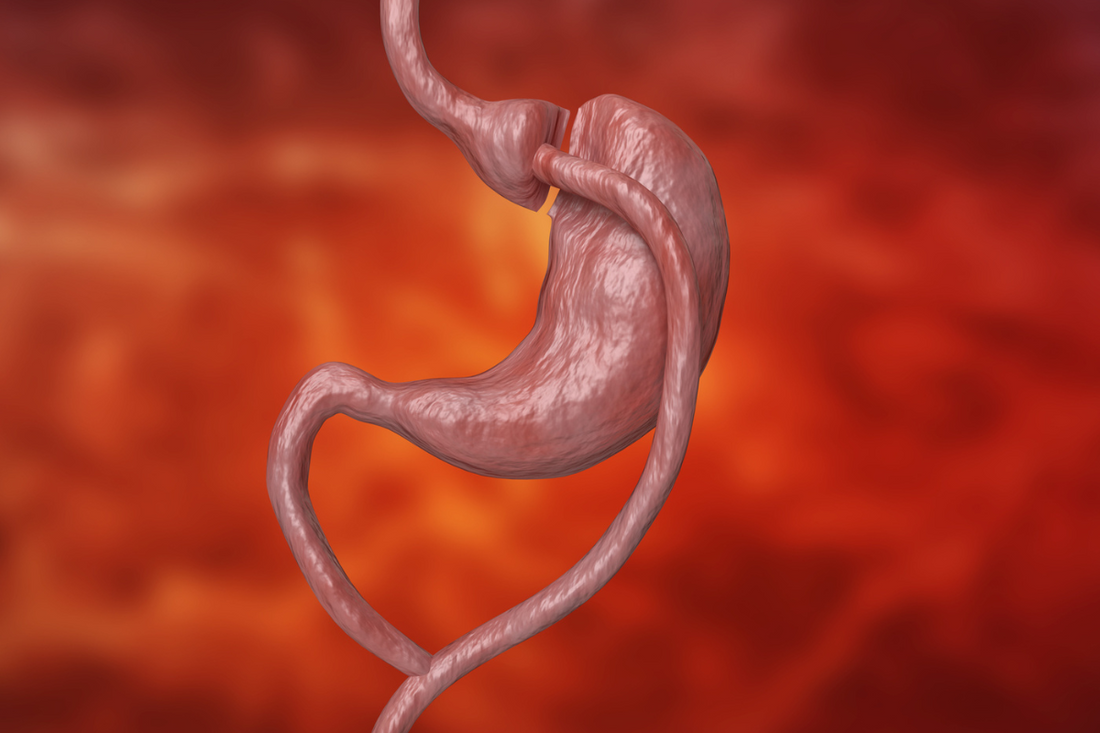Table of Contents
Gastric bypass surgery is a widely accepted bariatric procedure that has helped many individuals struggling with obesity regain control over their lives and health. In this procedure, a small stomach pouch is created, bypassing a large section of the stomach and small intestine, leading to less absorption of calories and nutrients. However, some patients may experience complications or not achieve the desired results, which raises the question: can gastric bypass be reversed?
The possibility of gastric bypass reversal is undoubtedly a concern for patients considering bariatric surgery or those who have already undergone the procedure and are facing unexpected challenges. While it is crucial to understand the factors that contribute to this decision, it's important to recognize that reversing a gastric bypass is not always feasible. The complexity and risks involved in returning to the original anatomy depend on the specifics of each patient's situation.
In the following paragraphs, we will explore the conditions under which a gastric bypass can be reversed, the potential risks involved, and the considerations one should make before making this decision. Through this information, you'll gain a better understanding of the possibilities and limitations of gastric bypass reversal, allowing you to make a well-informed decision about your bariatric journey.
Can Gastric Bypass Surgery Be Reversed?

As you consider bariatric surgery, it is important to know whether the procedure can be reversed in case you face complications or change your mind about the surgery. Gastric bypass, specifically Roux-en-Y and mini gastric bypass, involves making significant changes to your stomach and digestive system. Therefore, it is crucial to weigh the possibilities and the potential need for reversal.
While gastric bypass surgery can be reversed under specific circumstances, this process is quite complex and not without risks. The reversal of a gastric bypass involves restoring your stomach to its original size and reconnecting the small intestine to the stomach in its original configuration. This procedure usually requires a laparoscopic approach, just like the initial surgery.
Compared to other bariatric surgery options, such as gastric banding or adjustable gastric band surgery, gastric bypass reversal is more challenging due to the alterations made to the stomach pouch and small intestine. The anatomy might not always be restored to its original state, and there could be complications post-reversal. However, this does not mean that reversal is impossible; it simply depends on the individual's surgical history, current health status, and the expertise of the healthcare team performing the reversal.
Possible reasons for reversal:-
Severe complications arising from the initial surgery
-
Inadequate weight loss or weight regain after surgery.
-
Malnutrition or vitamin deficiencies that cannot be resolved with nutritional supplementation
It is essential to note that the decision to reverse a gastric bypass should not be taken lightly. Before considering reversal, consult with your healthcare team, including your surgeon and dietitian, to explore alternative solutions for managing your obesity and any complications from the initial surgery.
In summary, gastric bypass reversal is possible but should only be considered in severe circumstances, such as complications or malnutrition. The complexity of the procedure and the potential risks involved make other forms of bariatric surgery, such as adjustable gastric bands, more accessible and safer options for reversal. As always, consult with your healthcare team to determine the best approach for managing your weight and overall health.
What To Expect From A Gastric Bypass Reversal
Gastric bypass reversal is a procedure that returns your stomach and digestive system to its original state. This is done when bariatric surgery results in complications or when you decide to reverse the original surgery for personal reasons. Before deciding to undergo gastric bypass reversal, it is crucial to understand what to expect from the procedure.
The first step in considering a gastric bypass reversal is to consult with a bariatric surgeon who specializes in these procedures. They will review your medical history, assess the reasons for the reversal, and determine if you are a good candidate for the surgery. Your surgeon will also provide you with information on the risks and benefits of gastric bypass reversal.
Gastric bypass reversal can be performed laparoscopically, where small incisions are made in the abdomen. But depending on the complexity of your initial surgery and any complications, such as anastomotic leak or scarring, your surgeon may need to perform an open procedure. In this case, they make a single, larger incision.
The procedure typically involves reconnecting your small intestine to your stomach and reverting the Roux-en-Y bypass configuration to your original anatomy. This may involve reversing a gastric pouch, re-establishing the original connection between your stomach and small intestine, or even removing gastric bands placed during the initial surgery.
Recovery from gastric bypass reversal can be similar to recovery from bariatric surgery. You may experience mild to moderate pain in your abdomen, which your surgeon can help manage with pain relief medication. After the procedure, you will likely follow a specific diet plan, gradually reintroducing solid foods in a manner that allows your digestive system to adjust.
It is important to note that gastric bypass reversal is more complex than the original surgery, and potential complications or infections may arise. Keeping an open line of communication with your surgeon is essential for monitoring your recovery and addressing any concerns promptly.
In conclusion, gastric bypass reversal is a significant procedure that aims to restore your stomach and digestive system to its original state. By carefully considering your options and working with an experienced surgeon, you can make an informed decision about whether this procedure is right for you.
When Should A Reversal Be Considered?
It's important to consider a gastric bypass reversal when you experience complications or side effects that significantly impact your quality of life. While weight loss surgery has proven beneficial for many individuals struggling with obesity, it's not always the ultimate solution for everyone. Several factors might make you consider the possibility of a reversal, including:
- Failure to achieve appropriate weight loss or regain of weight: If you haven't achieved significant weight loss or have regained a considerable amount of weight after your gastric bypass surgery, a reversal might be an option to explore further solutions.
- Severe nutrition problems: Long-term nutritional deficiencies may lead to anemia, neurological issues, and bone problems. A reversal might be necessary if the malabsorption caused by gastric bypass negatively impacts your overall health and daily activities.
- Resolution of symptoms: In some cases, the initial condition leading to obesity, such as diabetes, heart disease, high blood pressure, or sleep apnea, might resolve after the weight loss surgery. If the benefits of the surgery are no longer necessary, it could be appropriate to discuss a reversal with your healthcare provider.
It's crucial to remember that a gastric bypass reversal is not a minor procedure. Complications can arise, such as infection, leakage of stomach contents into the abdomen, or damage to nearby organs. Furthermore, there is no guarantee that a reversal will resolve your issues or improve your health.
Always work closely with a qualified healthcare professional to assess your Body Mass Index (BMI) and evaluate the risks and benefits of a reversal. Make sure you understand the possible outcomes and consider all alternatives. Your doctor is your best resource for determining whether a gastric bypass reversal might be suitable for your unique situation and health needs.
Risks Of Gastric Bypass Reversal

When considering a gastric bypass reversal, it's crucial to understand the potential risks and complications that may arise. Although reversing the procedure may relieve symptoms or improve nutrition, it's not without its challenges.
- One of the primary risks is malnutrition; your body might not absorb nutrients properly after the reversal. You may experience nausea, vomiting, and diarrhea, which can contribute to a deficiency in essential nutrients.
- Ulcerations, or sores, may develop along the staple lines in the small intestine or other parts of the stomach. These ulcers can cause severe abdominal pain and might require additional surgery to address.
- Infection is another potential complication. Your body is exposed to bacteria when the intestines are opened during surgery, which may lead to an infection. To minimize the risk, your surgical team may administer antibiotics during the procedure.
- Blood sugar control may be affected after the reversal. If you've experienced improved blood sugar control following your initial gastric bypass, a reversal could worsen it, impacting your overall health.
- Blood clots can form as a post-operative complication, which may manifest in the legs or pelvis and sometimes travel to the lungs. To reduce this risk, your medical team may advise wearing compression stockings and engaging in gentle exercises soon after surgery.
- Bowel obstruction is another concern. Scar tissue from the initial surgery or the reversal can cause the intestines to become blocked or twisted. This often results in severe abdominal pain, vomiting, and the inability to pass gas or stool.
- Lastly, leakage can occur along the staple lines or the area where the intestines and stomach were reconnected. This can cause infection and might need further surgery to correct.
While gastric bypass reversal is a viable option for some, it's important to weigh these risks and discuss them thoroughly with your healthcare team before making a decision.
Recovery Of Reversal Surgery
After your gastric bypass reversal surgery, follow your surgeon's instructions carefully to ensure a smooth recovery. The reversal process is often done laparoscopically, similar to your original bariatric procedure, which typically reduces recovery time and minimizes risks.
In the first few days following reversal surgery, you may experience some discomfort and pain around the incision sites. This is normal, and your surgeon will likely prescribe pain medication to help manage the symptoms. Remember to take your medications as instructed and reach out to your healthcare team if you have questions.
Monitoring and adjusting your dietary intake is essential during recovery. Initially, you'll be on a liquid or soft diet, consuming small, frequent meals. Gradually reintroduce solid foods under the guidance of your bariatric team or a nutritionist. It's crucial to stay hydrated by drinking plenty of fluids, but avoid carbonated beverages or those high in sugar.
Supplementation will be an important aspect of your post-reversal diet, as it was after your initial surgery. You may still need to take various vitamins and minerals, such as calcium, to prevent deficiencies. Consult your healthcare provider or nutritionist to create appropriate supplementation plans tailored to your needs following the procedure.
During recovery, it's essential to monitor your weight and watch for any signs of complications. Some possible issues include scar tissue formation, marginal ulcers, or issues related to an intragastric balloon if it was used during reversal. Attend all scheduled follow-up appointments with your surgeon so they can evaluate your healing progress and address any concerns.
Lastly, engage in regular physical activity to support your overall health and weight management. Start with gentle exercises, such as walking, and seek your healthcare provider's guidance on when you can safely increase your activity levels.
By following your surgeon's recommendations and maintaining a healthy lifestyle, you can optimize your recovery and long-term success after gastric bypass reversal surgery.
Also Read: Top 11 Common Deficiencies After Weight Loss Surgery



 Order Free Sample
Order Free Sample





